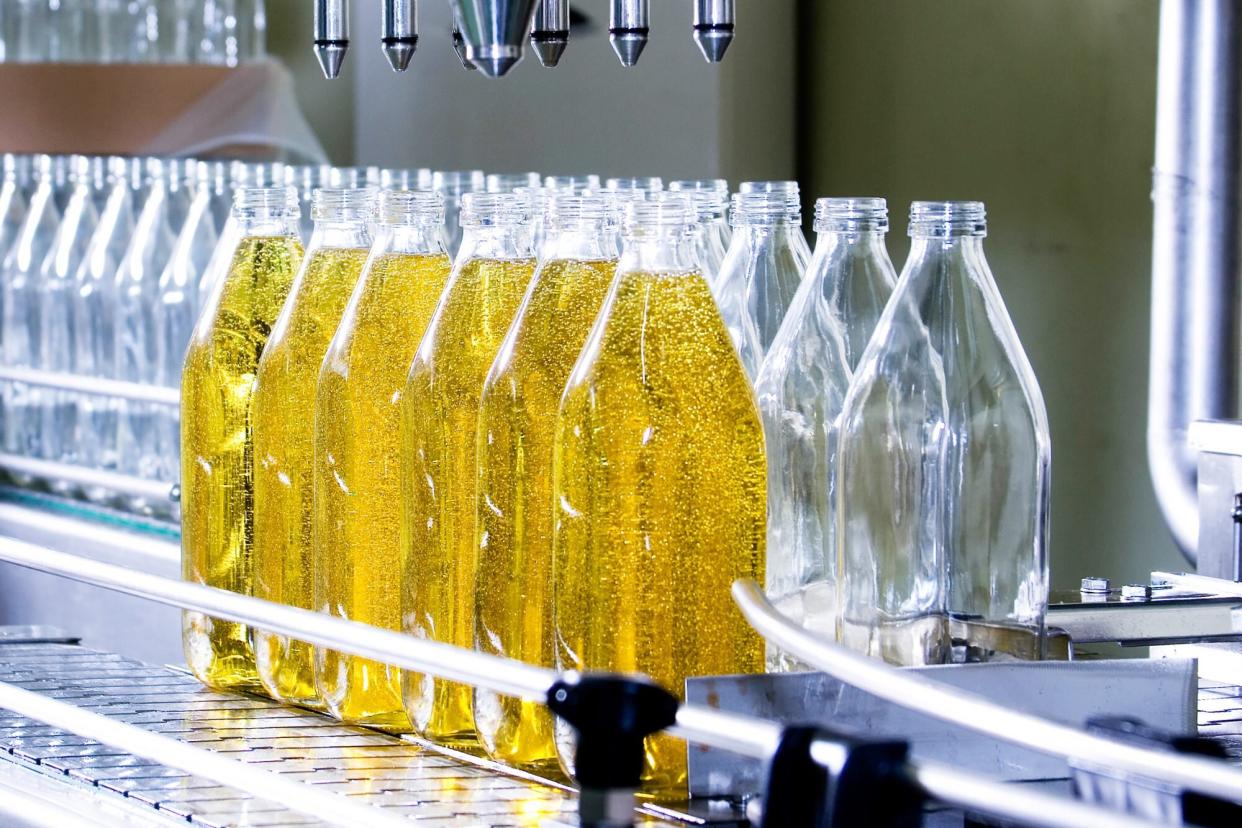Scorching Temperatures in Spain Could Threaten Olive Oil Production

Getty Images
Last week, Seville and other parts of Andalusian southern Spain endured the world's first-ever named heat wave. "Zoe" pushed temperatures well over 100 degrees, and it followed record-setting heat surges in June and July. ProMETEO Sevilla, the new pilot project that names heatwaves and kicked off in Seville, doesn't expect Zoe to be the last scorcher of the season, either: it has already set aside the names Yago, Xenia, Wenceselao, and Vega for other severe heat waves. And those triple-digit temperatures could also threaten the country's olive oil production.
"If there is no temperature relief or rains in the coming weeks, this year's olive harvest could be notably lower than previous ones," Spain's Agriculture Minister Luis Planas told Bloomberg.
The "olives sector" is also concerned about the decreased amount of rain in the region. "We are used to a lack of water, but not to this point," Felipe Elvira, an Andalusian olive farmer, told EuroNews. "The region used to get 800 liters of rainfall per square meter, but is set to get around half that amount this year. Every year it's worse."
According to the Olive Oil Times, Spain is the world's largest olive oil producer "by a wide margin," and the country accounts for nearly half of the world's olive oil supply. Meanwhile, parts of Italy — which is also one of the world's biggest olive oil producers — is also experiencing their worst drought in more than 70 years. As a result, some analysts believe that Italy's own olive oil production could be down by 20-30 percent this year.
The potential for smaller Spanish and Italian olive harvests, along with increased demand for olive oil, and decreased supplies of sunflower oil due to the ongoing war in Ukraine, suggests that vegetable oil prices will continue to increase.
The price of Italian virgin olive oil is already up 27 percent compared to the average cost two years ago. And according to a report from the European Commission, the price of olive oil is up 19 percent above the five-year-average in Spain, and it has increased by 16 percent throughout the European Union. "After an initial shock caused by the Russian invasion to Ukraine in March, E.U. olive oil prices slightly relaxed but remain still well-above the five‑year average," the report read.
"As Spain accounts for the lion's share of global olive oil production, these [harvest] reductions would see a significant tightening in global availability," Kyle Holland, an analyst for market research group Mintec, told the Guardian. "Looking forward, market participants are expecting prices to continue to rise unless the weather improves and gives crops some respite."
Elvira put it in even more bleak terms. "Everyone needs water," he said. "I don't know how we are going to manage."

